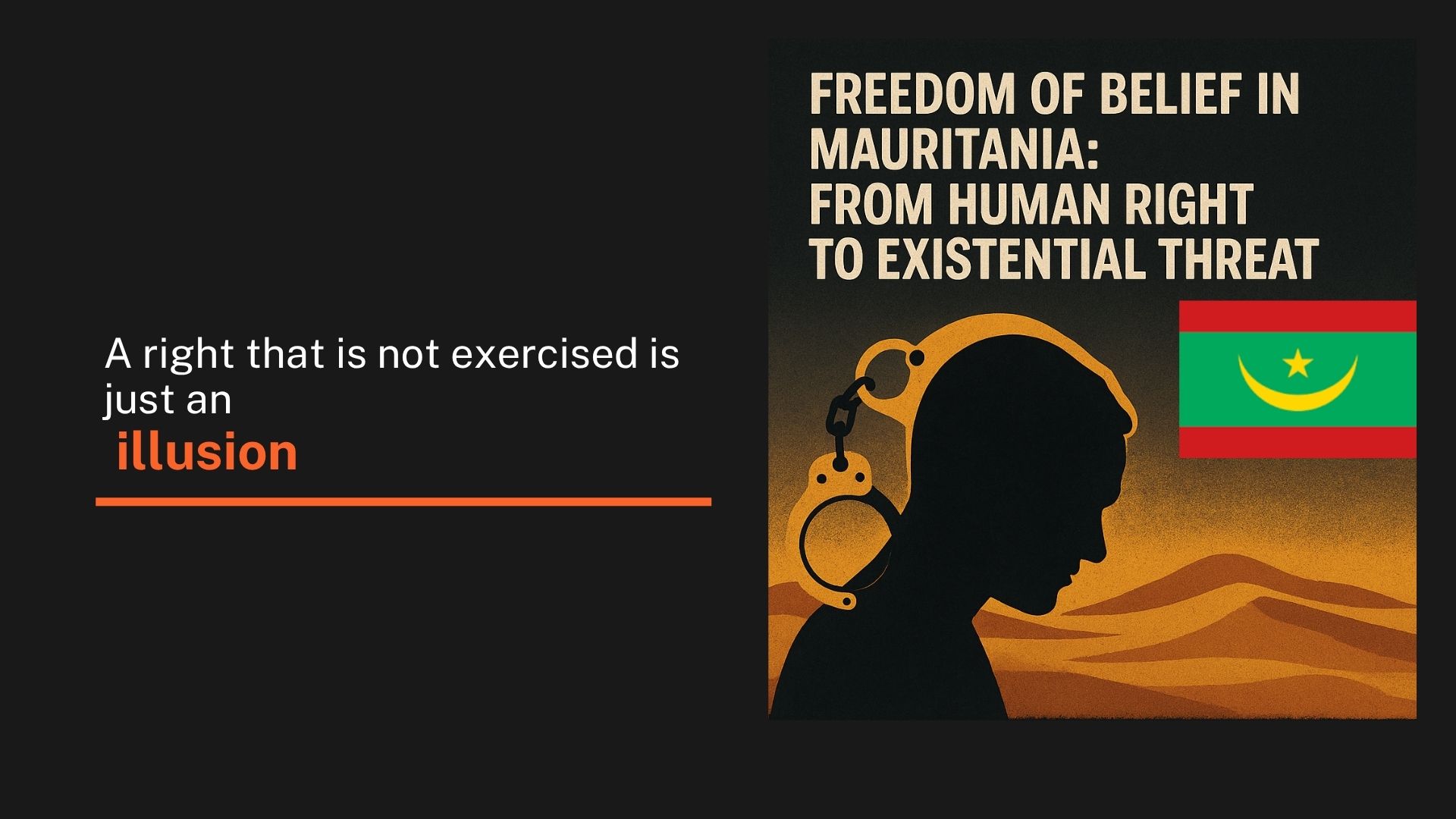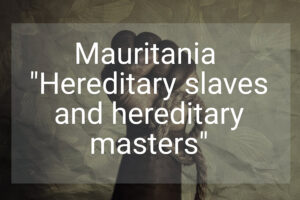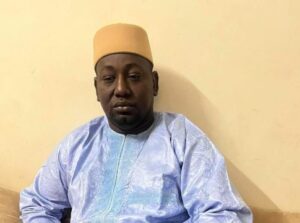In the heart of a desert that overshadows the souls of its inhabitants, many doors are closed, but the most dangerous thing that is closed in Mauritania today is not prisons, but minds. In a country that is supposed to have all its citizens, the right to think, believe, or even doubt is still fraught with the danger of both law and society. Freedom of belief in Mauritania is not only absent; it is taboo, stigmatized, and pursued as an existential crime that threatens the “constants of the nation.”
When the state becomes a church in disguise
Since its independence, the Mauritanian state has been associated with a traditional religious project that has left little margin for the individual in his relationship with the sacred. Faith here is not a personal choice, but a citizenship requirement imposed from above. The state declares Islam an official doctrine that is accepted only by others, and it militates its judicial, educational, and preaching institutions to consolidate a monistic conception of religion that does not recognize pluralism and does not tolerate criticism.
The Mauritanian Criminal Code criminalizes “apostasy”, but provides for the death penalty for those who leave Islam, even if they repent. This punishment has not been officially applied for years, but it exists legally, and is used as a means of threat and intimidation for anyone who dares to think outside the mold.
This is not only contrary to the International Covenant on Civil and Political Rights (Article 18), but contradicts the inherent meaning of religion as a free choice that stems from an internal conviction, not from social or legal fear.
Community as a Guardian at the Gates of Hell
It is not only the state that persecutes religiously different people; society, in turn, turns into a wider prison. He who professes religious suspicion, or expresses a different religious affiliation, is socially ostracized, accused of treason, cut off from his family, and persecuted in his district. Words such as “infidel,” “apostate,” “agent of the West,” are often repeated in describing those who do not even profess atheism, but merely express independence of thought.
Fear of “religious shame” continues to drive many to silence, emigrate, or forcibly represent a religion they do not believe in, only to guard against symbolic or physical violence. Society has become a religious condition on the body and mind, watching you not with what you do, but with what you think.
Irreligious in Exile: Expelled from the Earth, Stalked in Exile
Persecution does not end at the borders of the homeland. Many non-religious, apostate, and atheists from Mauritania are fleeing to Europe for protection. But even there, in asylum centers, religious violence is reproduced against them by other refugees, who carry with them the same systems of hatred and censorship, amid the almost complete absence of special protection from Western governments.
Numerous cases have been documented of Mauritanians being threatened, assaulted, arrested and imprisoned for their beliefs or criticism of Islam
Why does atheism frighten the political system?
Atheism or religious difference is not just an “intellectual problem” in Mauritania, but an existential political danger to a system that gains legitimacy from monopolizing the interpretation of the sacred. The state that empties religion of its plurality to own it, fears that the rug will be pulled from under it when people demand the separation of religion from the state.
Freedom of belief, here, does not threaten religion, but rather the tyranny that wears its mantle. Therefore, the defense of a person’s right to believe or atheism, is a defense of the right to be human, not a number in a flock, or a follower in a single intellectual map.
A right that is not exercised is just an illusion..
Freedom of belief is not an intellectual well-being, but an existential condition of man’s humanity. In Mauritania, this right is treated as a bomb that is buried before it explodes. But the truth remains: man cannot truly believe unless he is given the right not to believe. The dignity of society is not measured by the number of religious people in it, but by how much it protects the different from its oppression.




